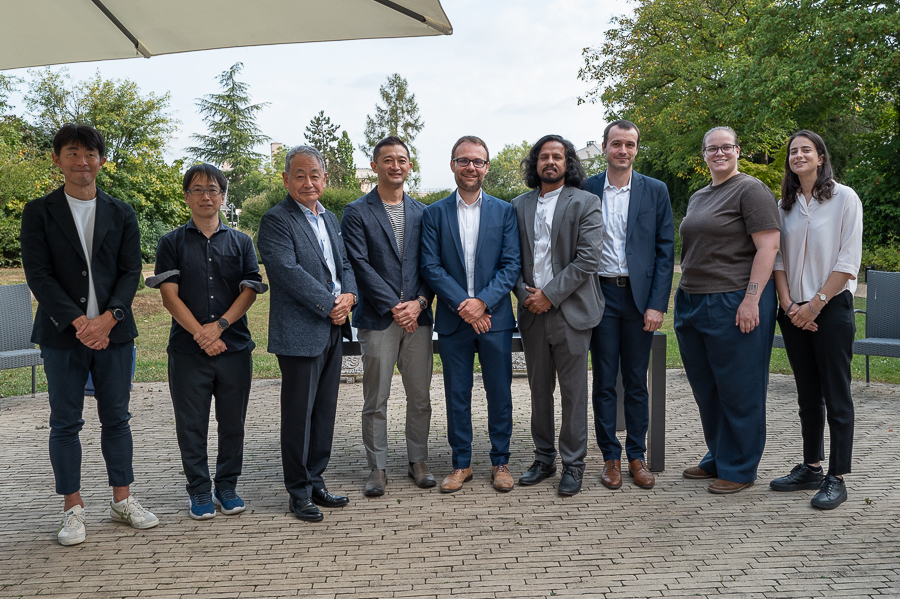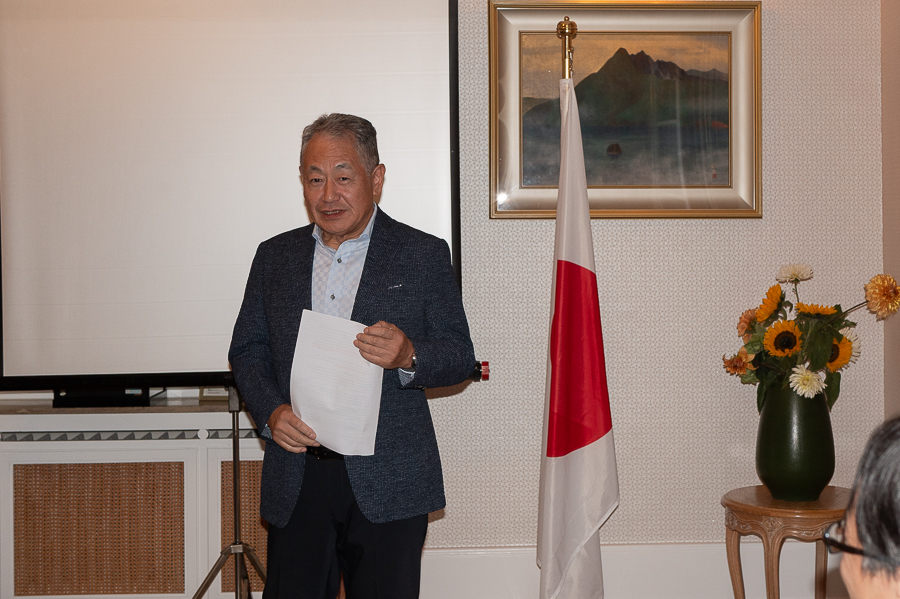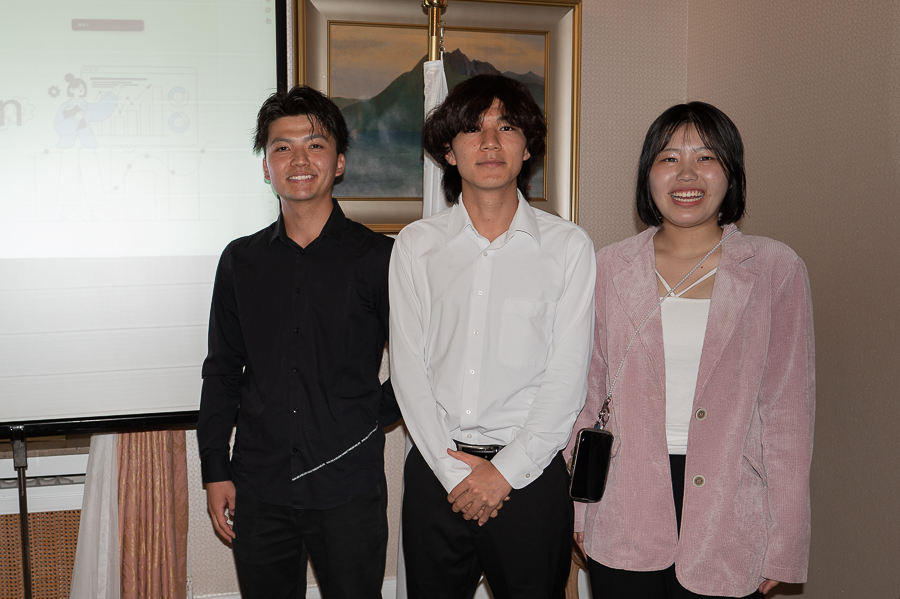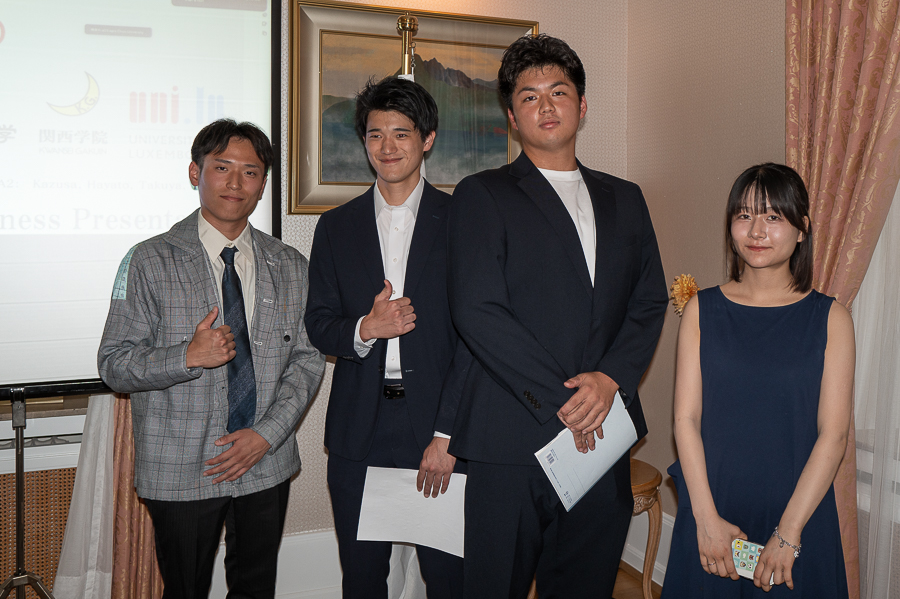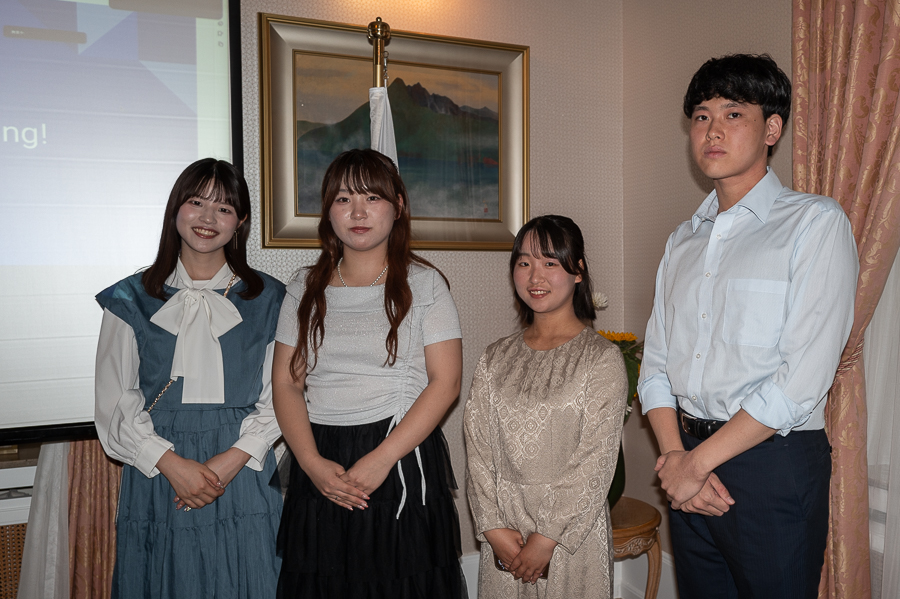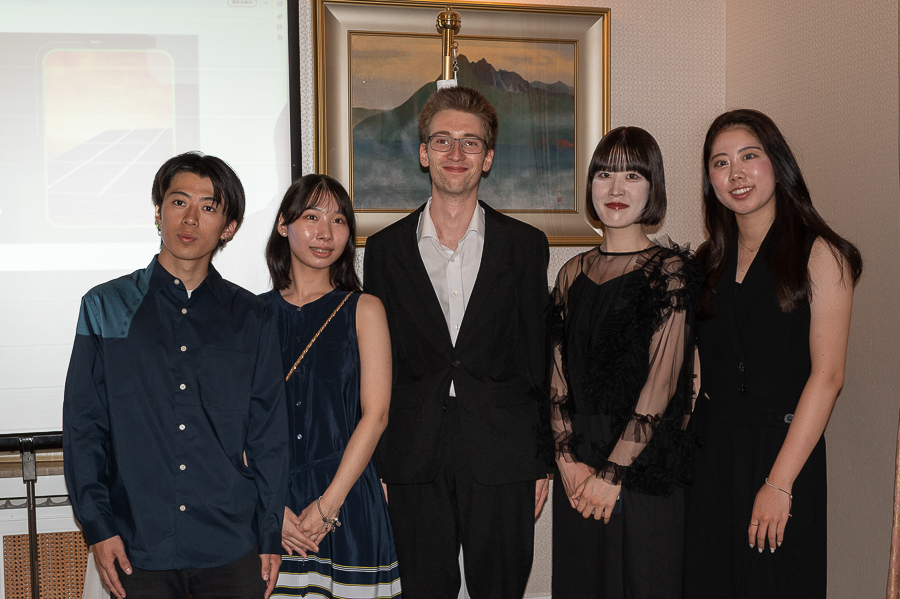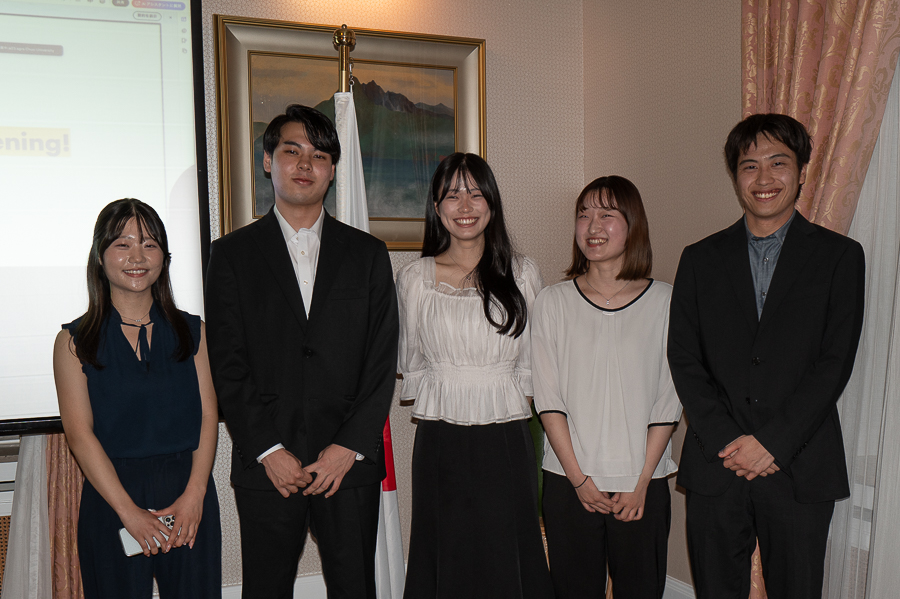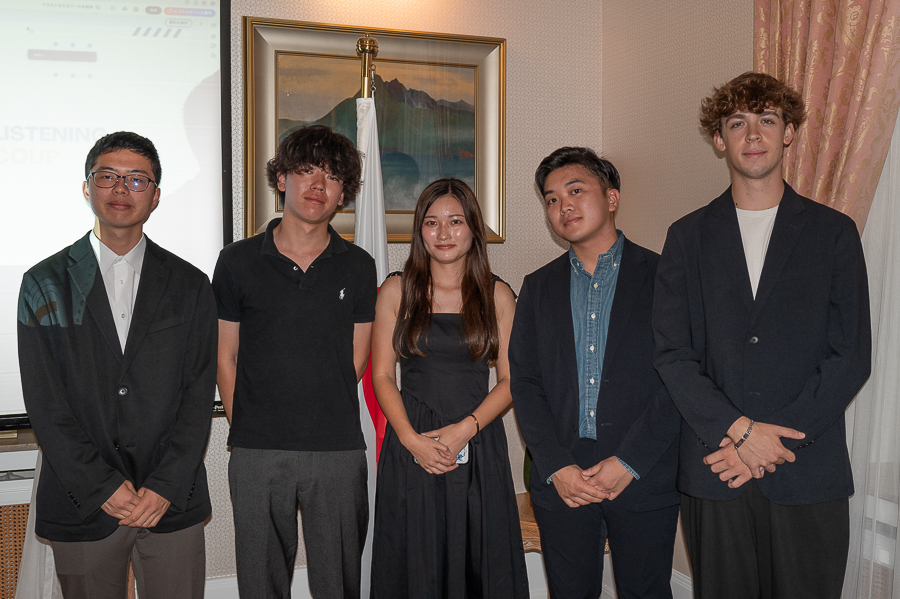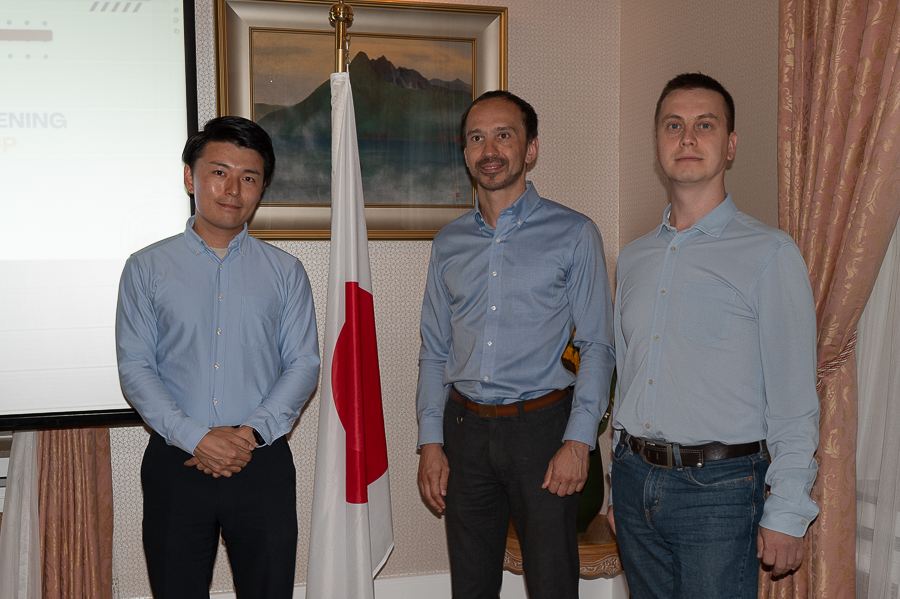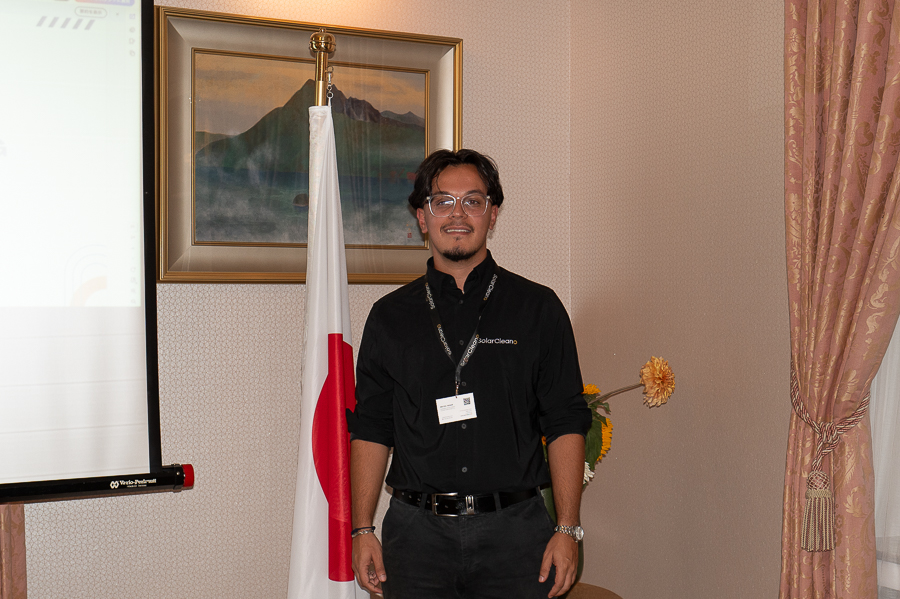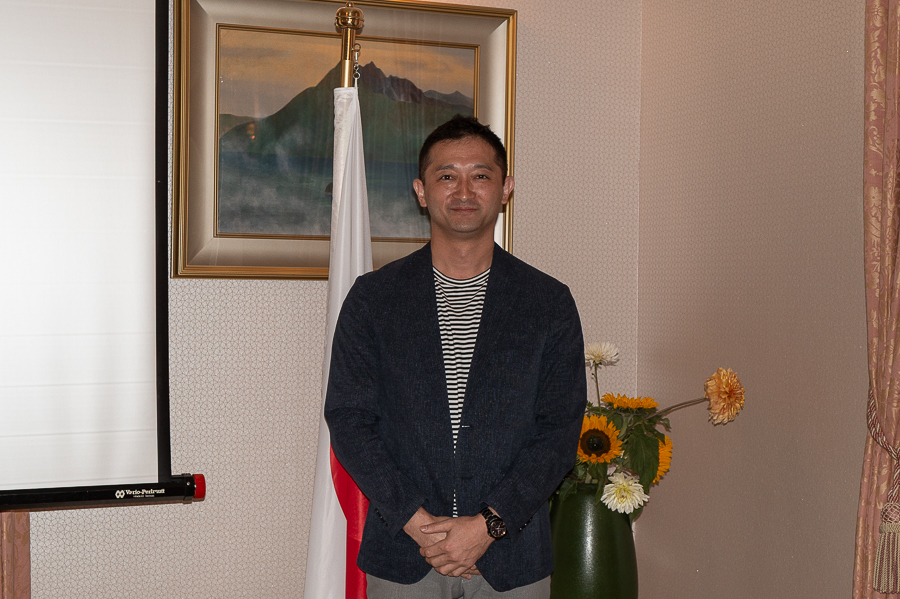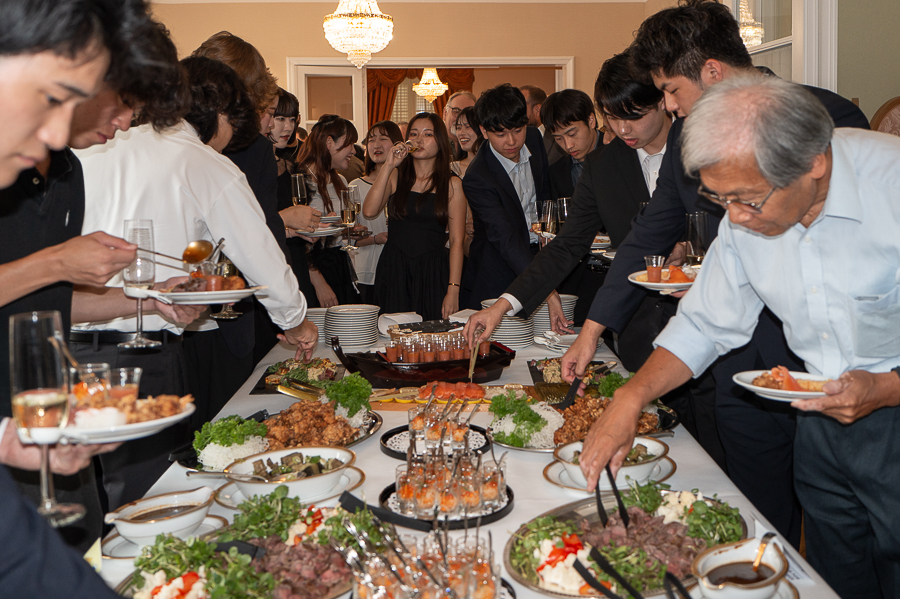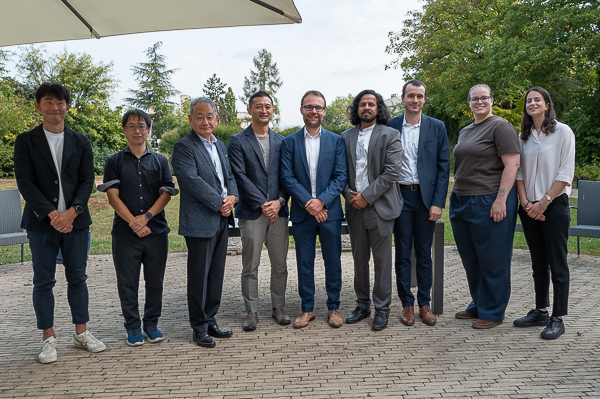 Credit: Ali Sahib, Chronicle.lu
Credit: Ali Sahib, Chronicle.lu
On Wednesday 27 August 2025, the Ambassador of Japan to Luxembourg, Tadahiro Matsubara, hosted a reception at his residence for around 80 people, mainly students.
In his address, Ambassador Matsubara extended a special welcome to visitors from Japan, and representatives of the “pioneering startup organisations” and “challenging assignments”, with Luxembourg’s representatives from the LTIO office in Japan also joining online.
He talked about the two startups, Artec 3D active in 3D printing, and SolarCleano in robotics for solar panel cleaning.
He acknowledged the interest in the event, thinking out loud about expanding next year’s event which he described a building bridges between the two nations. He also mentioned 2027 being a significant anniversary of diplomatic relations between the two countries.
The event included a presentation of results from the joint project between Japanese and Luxembourgish universities, the culmination of a collaborative research project involving Chuo University, Kwansei Gakuin University (Japan), and the University of Luxembourg.
Students from these universities have worked together over the past few months to address the following research topics: the potential applications of handheld scanners in the healthcare field (in collaboration with Artec 3D); and the potential for expanding the market for solar panel cleaners in Japan (in collaboration with SolarCleano).
The programme included student presentations followed by a feedback session with representatives from Artec 3D and SolarCleano teams.
A first team from Artec 3D explained that there is a significant demand for their services, giving examples in which they supply non-contact scanning services for animals to both application companies as well as veterinary facilities and pet shops. Their scanners are both low-cost and portable, with the business model based on monthly subscriptions and usage fees. Headquartered in Luxembourg, their potential partners include Digitail who already have a global reach, as well as companies in both Japan and the US, and sales offices in California, Shanghai and Tokyo.
The application of such 3D scanning technology in the wellness sector was then presented by a second team, including the use of full body scanners and the results of a survey on market needs which showed that AI integration would be welcomed. They proposed various partners, including universities, influencers and fitness gyms.
A third team then addressed the application of such 3D scanning technology in cosmetic surgery, including the results of research into levels of satisfaction. They presented a comparison of current technology used, comparing Artec 3D and showing how the software and hand-held scanners can be sold and used.
The first SolarCleano team presented a market strategy for Japan, explaining the public’s lack of understanding of cleaning solar panels. They presented graphs illustrating trends in the growth of the solar energy market. They also addressed using influencers across various platforms to achieve engagement.
The second SolarCleano team presented the results of a comparative study of its and other products on the market, illustrating SolarCleano’s advantages. They also showed how they received advertising coverage of their product in influential media to reach B2B purchasing managers.
SolarCleano’s third team presented its business model, explaining that it uses digital channels to reach target audiences and delivering planned messages. They also addressed understanding and using SEO and social media, as well as participating in an industry exhibition. They presented the results of a survey into cleaning solar panels in Japan and highlights the importance of Japanese business culture.
Representatives from the two companies then provided their feedback on the university project presentations, praising the students for their professional approaches.
The event concluded with a buffet lunch, hosted by the Embassy of Japan.

